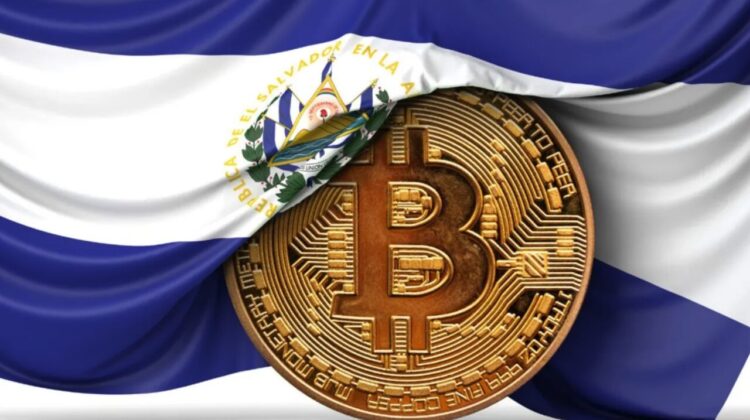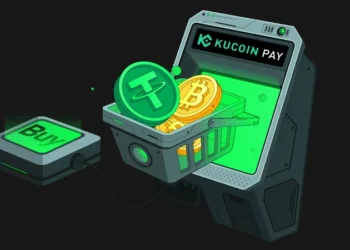QUICK BREAKDOWN
- El Salvador holds over 6,000 BTC, giving its El Salvador crypto reserve a strong chance to reach the $1 billion mark if Bitcoin rallies or more purchases are made.
- Prediction markets show rising optimism, with odds hovering around 40–43%, boosted by Bukele’s signalling and global speculation.
- Risks remain high—IMF pressure, market volatility, and reputation concerns could derail the milestone.
- Hitting $1 billion would be a politically charged and economically sensitive achievement, shaping global views on sovereign Bitcoin adoption.
Bukele’s Role in Fueling Prediction Markets (Kalshi vs. Polymarket)
President Nayib Bukele recently drew global attention by spotlighting lively prediction markets gaining steam around whether El Salvador’s Bitcoin holdings would surpass $1 billion by late 2025. On X, he playfully teased:
“I could do the funniest thing right now…”
in response to Kalshi’s odds rising from 10% to 20% for a pre-November milestone, and hovering around 25% for “before December”
ALT TXT
I could do the funniest thing right now… https://t.co/82lENa4hgN
— Nayib Bukele (@nayibbukele) August 27, 2025
For Bukele, amplifying prediction markets serves dual purposes: stoking investor sentiment and subtly signalling potential buy behaviour. His tweet triggered engagement, perhaps even nudging public expectations about the value of El Salvador’s bitcoin in the near future.
How Much is El Salvador’s Bitcoin Worth & IMF Controversy
El Salvador’s Bitcoin vault is steadily growing, with the nation currently holding around 6,344 BTC worth around $742 million as part of President Nayib Bukele’s ambitious crypto strategy.

Despite a $1.4 billion loan agreement with the International Monetary Fund (IMF), which strongly encourages the country to scale back its Bitcoin purchases, the administration shows no signs of retreat. It was confirmed that the Bitcoin Office is still actively acquiring BTC, underscoring the government’s determination to anchor its financial policy around cryptocurrency, even in the face of international skepticism.
But the IMF relationship remains fraught with contradictions. In a July 2025 letter, Salvadoran finance officials noted that the country hadn’t bought Bitcoin since February. Yet Bukele himself pushed back forcefully, insisting the accumulation strategy is far from over. “No, it’s not stopping,” he declared in a March post on X. “If it didn’t stop when the world ostracized us and most ‘bitcoiners’ abandoned us, it won’t stop now, and it won’t stop in the future.”
The IMF, for its part, has clarified that Bitcoin accumulation technically remains within the terms of its Extended Fund Facility (EFF) agreement, meaning no outright breach of conditions. Still, this tug-of-war—Bukele’s bullish defiance against the IMF’s cautious oversight keeps investors guessing whether the El Salvador crypto reserve will keep expanding toward the $1 billion milestone.
Also Read: Lessons Learned from El Salvador’s Bitcoin Experiment
How Prediction Markets Influence Investor Sentiment
Prediction markets like Kalshi and Polymarket do more than just track numbers; they transform collective beliefs into tradable probabilities. When traders assign a 43% chance that El Salvador’s Bitcoin holdings will hit $1 billion, it’s not just a statistic; it becomes a powerful public signal. That figure can set the tone for headlines, shape investor psychology, and even nudge policy expectations.
In many ways, prediction markets act as sentiment barometers, offering real-time snapshots of what people think might happen. But their influence doesn’t stop there. When a high-profile figure like President Bukele draws attention to them, the signals get amplified. A single tweet can magnify expectations, fueling a self-reinforcing loop where speculation drives behaviour and behaviour drives more speculation.
The cycle is further intensified by media coverage and social chatter. Once markets, leaders, and readers all start reflecting each other’s optimism or skepticism, the sentiment becomes circular. What began as a probability on a trading platform can quickly snowball into a broader narrative that moves both minds and markets.
Risks of a Sovereign Bitcoin Strategy
Volatility & Fiscal Exposure
Bitcoin’s notorious price swings create significant uncertainty for state budgets. A 10% move in BTC value could result in tens of millions of dollars in unrealized gains or losses, directly impacting El Salvador’s crypto reserve and fiscal balance. Such volatility makes long-term financial planning challenging, especially when a substantial portion of reserves is tied to a single, highly speculative asset.
Policy & Reputation Risk
Heavy reliance on Bitcoin could undermine broader fiscal prudence and raise questions about government stability. If investors perceive the country as overexposed or desperate to push prices up, bond yields may spike, borrowing costs could rise, and international confidence in El Salvador’s financial management could be shaken.
Institutional Conflict
President Bukele’s aggressive accumulation strategy runs counter to the cautious approach favoured by international financial institutions. If perceived as reckless, this posture could limit access to external financing or trigger stricter conditions on loans and aid, further complicating El Salvador’s macroeconomic planning.
Infrastructure & Security
Even with moves to split holdings into multiple addresses, maintaining custody, security protocols, and preventing loss/hacking remains complex. Safeguarding El Salvador’s crypto reserve is no trivial task at a sovereign scale.
Conclusion: Can the El Salvador crypto reserve hit $1 billion?
El Salvador’s march toward the billion-dollar mark in Bitcoin reserves is possible, but far from certain. With holdings now above 6,000 BTC, a strong rally in Bitcoin’s price or fresh purchases from Bukele’s government could tip the scales past the milestone. Prediction markets are already leaning optimistic, with odds climbing into the 40–43% range, buoyed by the president’s public signalling and the wave of speculative interest it generates.
Yet the path forward is hardly straightforward. IMF scrutiny, market volatility, and the reputational stakes of such a bold experiment all loom large. If the $1 billion threshold is reached, it won’t just be a financial milestone; it will be a political flashpoint, with the world watching how El Salvador’s Bitcoin bet plays out.
Disclaimer: This article is intended solely for informational purposes and should not be considered trading or investment advice. Nothing herein should be construed as financial, legal, or tax advice. Trading or investing in cryptocurrencies carries a considerable risk of financial loss. Always conduct due diligence.
If you would like to read more articles like this, visit DeFi Planet and follow us on Twitter, LinkedIn, Facebook, Instagram, and CoinMarketCap Community.
Take control of your crypto portfolio with MARKETS PRO, DeFi Planet’s suite of analytics tools.”





















